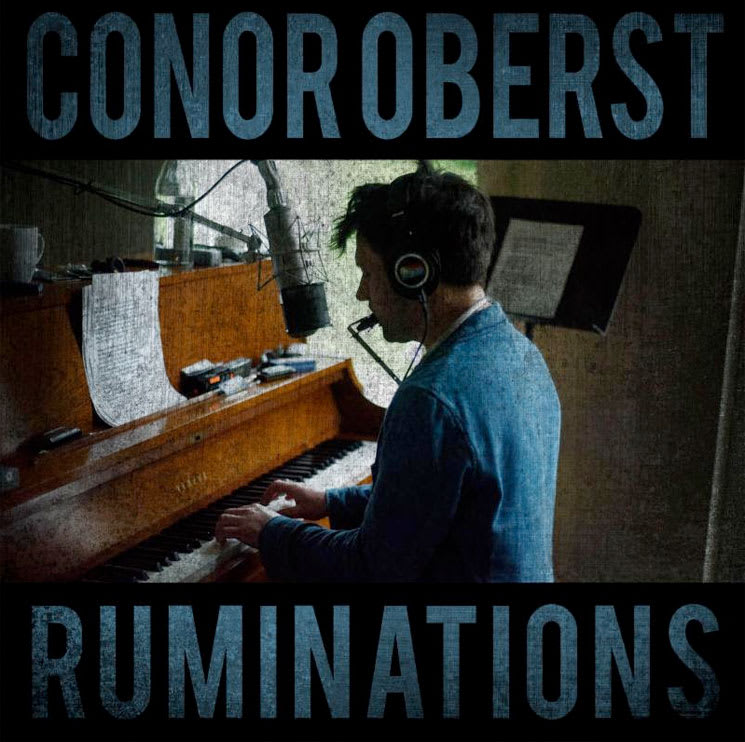Conor Oberst used to whimper, wail and howl bloody murder, but he never used to ruminate. Things have changed, though; the Omaha songwriter has grown more restrained in recent years, and Ruminations, an album recorded during a lonely winter in his native Omaha, NE is another level-headed solo collection from the once-angsty Bright Eyes leader.
Although the album's restraint is typical of Oberst these days, Ruminations isn't simply business as usual: this is the musician at his quietest, with skeletal arrangements built entirely around acoustic guitar and piano, with only harmonica to provide accompaniment. The album cover resembles that of Bruce Springsteen's bare-bones classic Nebraska, and surely that's not a coincidence.
The minimal instrumentation places the focus squarely on the words, and here, this is a good thing — these are Oberst's best lyrics in years. "A Little Uncanny" is particularly gripping, as a condemnation of Ronald Reagan gives way to a poignant list of dead celebrities and the admission that, "They say a party can kill you, sometimes I wish it would."
Elsewhere, "Tachycardia" contains touching lines about the ennui of a cafe worker ("Life's an odd job that she don't got the nerve to quit"), "Next of Kin" is a world-weary examination of death ("I met Lou Reed and Patty Smith / It didn't make me feel different") and closer "Till St. Dymphna Kicks Us Out" harkens back to the days when alcohol abuse was a central concern in Oberst's lyrics ("I never was a good judge of when to call it a night").
Ruminations isn't exactly a stunner — it's too low-key for that — but as a humble mood-piece, it's an engrossing listen. Its best moments are also its darkest ones, showing that Oberst is at his best when he keeps the production as raw as the emotions.
(Nonesuch)Although the album's restraint is typical of Oberst these days, Ruminations isn't simply business as usual: this is the musician at his quietest, with skeletal arrangements built entirely around acoustic guitar and piano, with only harmonica to provide accompaniment. The album cover resembles that of Bruce Springsteen's bare-bones classic Nebraska, and surely that's not a coincidence.
The minimal instrumentation places the focus squarely on the words, and here, this is a good thing — these are Oberst's best lyrics in years. "A Little Uncanny" is particularly gripping, as a condemnation of Ronald Reagan gives way to a poignant list of dead celebrities and the admission that, "They say a party can kill you, sometimes I wish it would."
Elsewhere, "Tachycardia" contains touching lines about the ennui of a cafe worker ("Life's an odd job that she don't got the nerve to quit"), "Next of Kin" is a world-weary examination of death ("I met Lou Reed and Patty Smith / It didn't make me feel different") and closer "Till St. Dymphna Kicks Us Out" harkens back to the days when alcohol abuse was a central concern in Oberst's lyrics ("I never was a good judge of when to call it a night").
Ruminations isn't exactly a stunner — it's too low-key for that — but as a humble mood-piece, it's an engrossing listen. Its best moments are also its darkest ones, showing that Oberst is at his best when he keeps the production as raw as the emotions.
